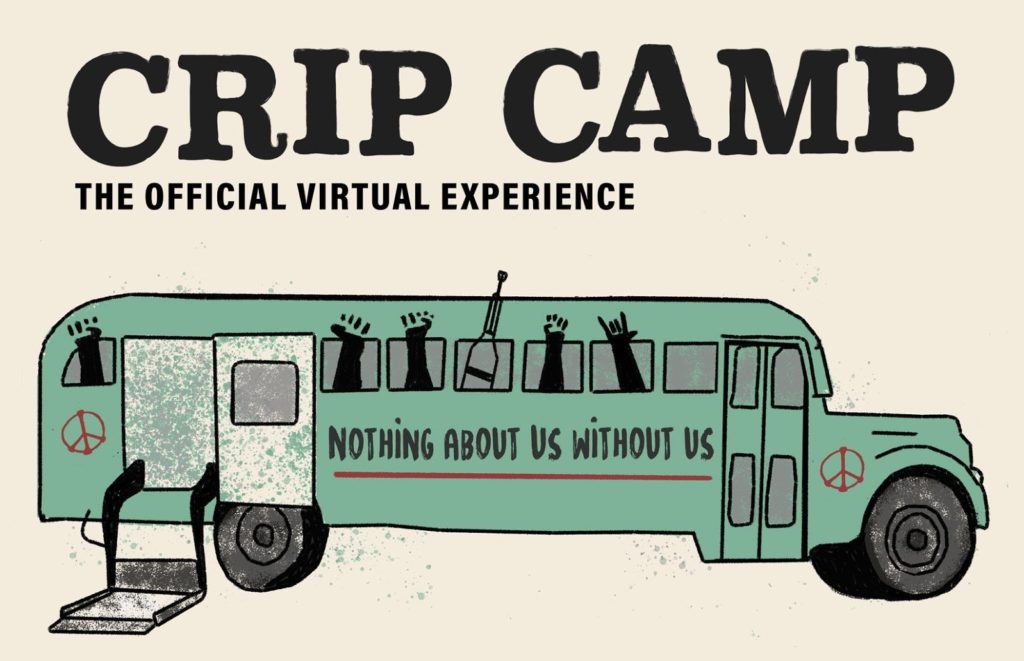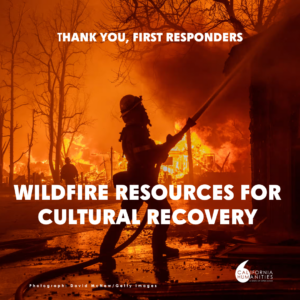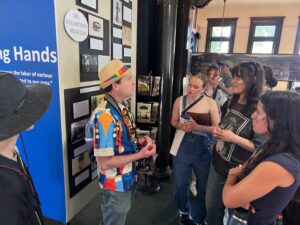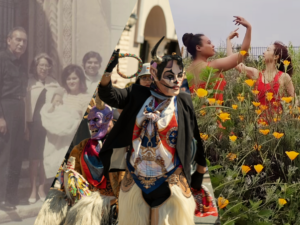Documentaries can provide a window into worlds we may never otherwise experience, allow us to get to know people we may have never met, and help us better understand and empathize with the contemporary challenges around us. California Humanities is proud of our long history of supporting essential and engaging nonfiction films, podcasts, and interactive media projects that document California in all its complexity. Since 2003, we have made over 250 grants and awarded nearly $6.5 million through the California Documentary Project (CDP) grant program to humanities-based media projects. Each adds a new layer to a complex and growing portrait of California. Together, they help us better understand who we are, where we live, and where we come from.
California Stories, National Audiences
CDP-supported projects reach and engage national and statewide audiences through broadcasts, podcasts, streaming, at festivals, and more. From the recent five-part nationally broadcast PBS series THE ASIAN AMERICANS, to the release of the films DISCLOSURE and CRIP CAMP on Netflix, to the most streamed film ever in the American Masters series’ 34-year history, UNLADYLIKE2020: THE CHANGEMAKERS, CDP projects bring California stories to national audiences.
They also engage audiences in classrooms, in communities, and online. The impact campaign for CRIP CAMP, the recently released film documenting the origins of the disability rights movement, launched this summer with socially distanced online workshops and gatherings for grassroots disability rights activists and the general public to learn, build community, and strategize. Weekly sessions focused on subjects and issues such as internalized ableism, the history of disabled Black activism; disability, gender, and reproductive rights; and more. At one weekly workshop, the film’s executive producers Michelle and Barak Obama made a guest appearance in recognition of the 30th anniversary of the passage of the Americans with Disabilities Act.
CDP projects receive national awards and accolades such as Academy Award nominations for the films WALK RUN CHA CHA and LAST DAY OF FREEDOM and Emmy Award nominations for UNITED SKATES, NO MÁS BEBÉS, and DOGTOWN REDEMPTION. In addition to receiving the Excellence Award by the National Association of Black Journalists, THE STOOP, a podcast series exploring culture and community in the Black diaspora, was recommended by both the New York Times and CNN as one of the essential “must-listen podcasts raising marginalized voices.”
We Want Your Stories Too
California is a state of almost 40 million people with just as many stories. While the range of subjects explored by CDP grantees is broad—from recent grants that include an exploration of the Oakland origins of the gospel mega-hit “Oh Happy Day!,” an eye-opening look at transgender depictions in film and television, to the story of California veterans struggling with post-traumatic stress disorder (PTSD)—there are always more untold stories to tell.
To continue the work of building a complex and growing portrait of California, we invite applications to the 2020 California Documentary Project grant cycle. We seek documentary projects for the November 2, 2020 deadline that bring new and previously unheard perspectives to light; reflect a broad cross-section of Californians’ stories; and help reveal the breadth and range of California’s cultures, peoples, and histories.
Visit the California Documentary Project grants page for guidelines, application instructions, and a list of previously awarded projects. For more information, contact Senior Program Officer John Lightfoot at cdp@calhum.org.






